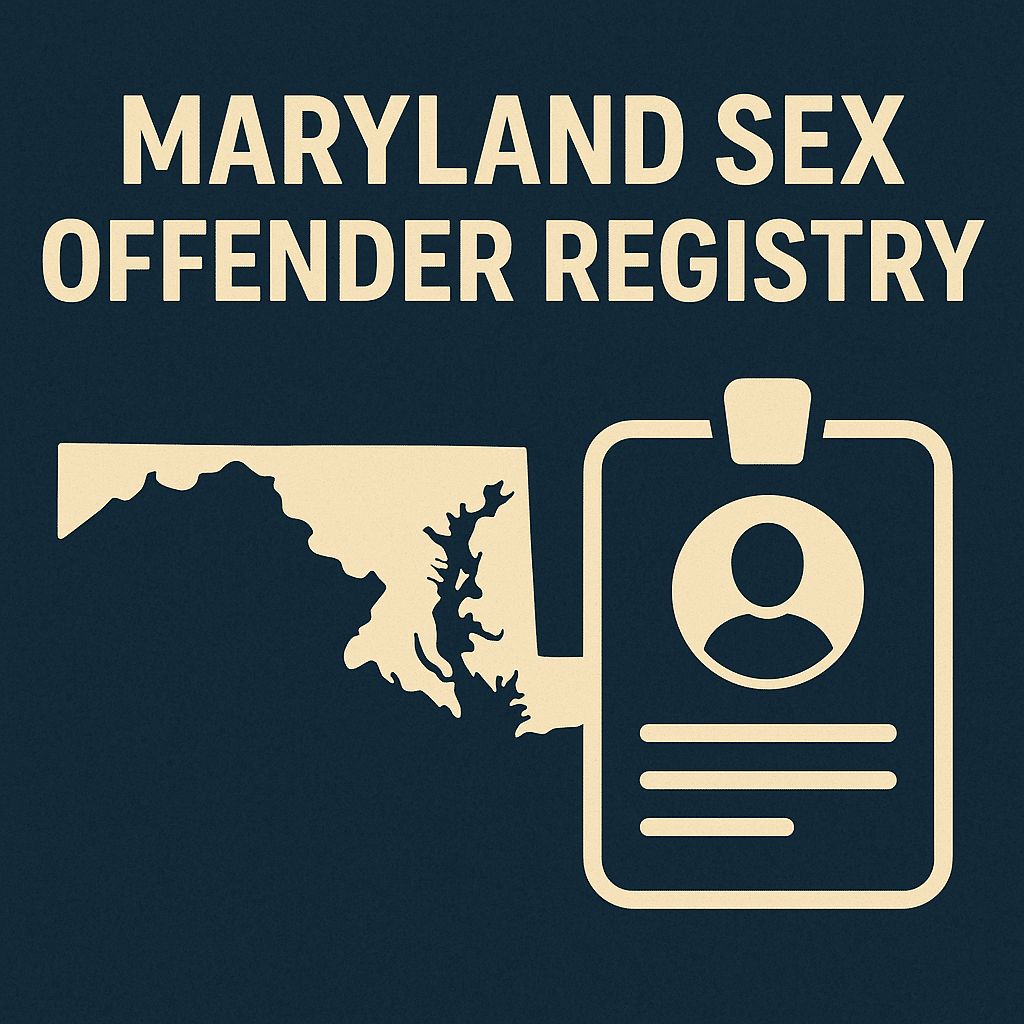
The Maryland sex offender registry is a publicly accessible database that tracks individuals convicted of certain sex-related offenses. Managed by the Maryland Department of Public Safety and Correctional Services (DPSCS), the registry plays a key role in public safety and legal compliance across the state, including in Charles, Prince George’s, Calvert, and St. Mary’s Counties.
If you or someone you care about is facing charges that could lead to registration, it’s critical to understand how the system works—especially the classifications, registration requirements, and legal consequences.
What Is the Maryland Sex Offender Registry?
Maryland’s sex offender registry was created to inform the public about individuals convicted of specific sexual offenses. It helps law enforcement monitor offenders and provides transparency to the community. The registry includes information such as:
- Full name and aliases
- Recent photograph
- Physical description
- Residential address
- Conviction details
- Employer and/or school
- Registration tier (Tier I, II, or III)
The information is available to the public online through the Maryland Sex Offender Registry website.
Who Has to Register?
In Maryland, registration is mandatory for individuals convicted of certain criminal offenses, including:
- Rape and sexual assault
- Child pornography offenses
- Sexual abuse of a minor
- Soliciting a minor
- Human trafficking involving sexual conduct
Registration is not limited to Maryland residents—non-residents working or attending school in Maryland must also register.
What Are the Registry Tiers?
Maryland classifies sex offenders into three tiers, which determine the length of time someone must remain on the registry:
- Tier I – Lowest level. Requires registration for 15 years (with the possibility of reduction after 10 years if certain conditions are met). Includes crimes like possession of child pornography and certain types of non-violent sexual offenses.
- Tier II – Mid-level. Requires registration for 25 years. Includes offenses like distribution of child pornography or sexual solicitation of a minor.
- Tier III – Most serious. Lifetime registration is required. Includes rape, sexual abuse of a child, and repeat offenses.
How Often Do Registrants Have to Check In?
The frequency of in-person registration depends on the tier:
- Tier I – Once per year
- Tier II – Every six months
- Tier III – Every three months
Failure to register or update information as required is a felony offense and can lead to additional prison time.
Can You Be Removed from the Registry?
Yes, but only under limited circumstances. Tier I registrants may petition for removal after 10 years if they have not committed another offense and have complied with all registration requirements. Tier II and Tier III offenders do not currently have a removal option under Maryland law, although some constitutional challenges may be raised in certain cases.
If you believe you were wrongfully placed on the registry or that your registration period has expired, an experienced Southern Maryland criminal lawyer can help you pursue relief through the courts.
How Does the Registry Affect Your Life?
Being on the registry can have serious and lasting consequences:
- Difficulty finding employment or housing
- Public stigma and community backlash
- Restrictions on where you can live or travel
- Immigration consequences for non-citizens
- Limited access to schools or certain professions
Even years after a sentence has been served, the registry can continue to affect nearly every part of a person’s life.
What Should You Do If You’re Facing Registration?
If you’re charged with a qualifying offense, it’s critical to consult a criminal defense attorney before accepting a plea or going to trial. A conviction can result in decades—or even a lifetime—on the registry.
At Southern Maryland Criminal Defense, we’ve helped clients in Charles, Prince George’s, Calvert, and St. Mary’s Counties fight sex offense charges and avoid unjust consequences. We can explain your options, defend your rights, and pursue the best possible outcome.
Charged with a Sex Offense? Contact Us Today.
Facing charges that could land you on the Maryland sex offender registry is serious. Don’t face it alone. Schedule your consultation with a lawyer today.
